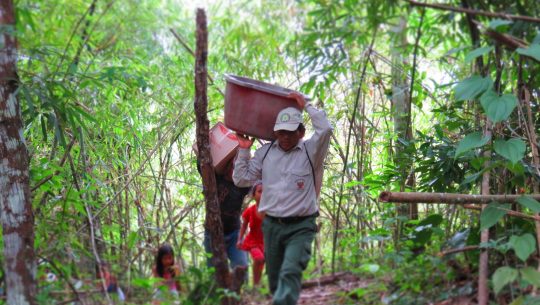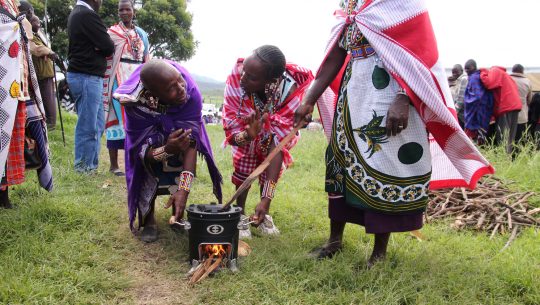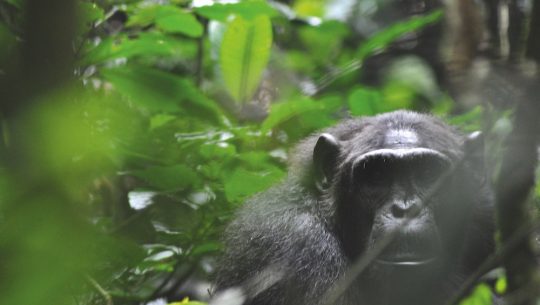The spectrum of offsetting projects varies considerably and ranges from using renewable energy, to protecting or afforesting areas of forest, and even to programmes for regenerating depleted farmland or converting to environmentally friendly agriculture. You too can help to recommend new development and climate action projects designed to offset CO2 emissions. The money for acquiring certificates flows directly into the respective local projects.
The result:
Feel free to contact our compensation partners. They will provide you with professional advice and support in your choice of specific projects. Upon request, our partners can also set up carbon accounting for you.
The climate protection certificates accepted by the Development and Climate Alliance conform to high international standards. In order to provide optimal transparency, a catalogue of requirements sets out the standards and processes approved by the Alliance.
As well as the SDG 13 (climate action), the compensation projects always support at least one other goal among the global Sustainable Development Goals of the 2030 Agenda: these 17 goals (in total) include, for example, access to affordable and clean energy and to clean water for all, good health, and the goal of ending poverty in all its forms everywhere. Your compensation is therefore a concrete contribution with a direct impact – on climate action and on people in developing and emerging countries.
As a supporter of the Alliance, you will contribute to the development, promotion and implementation of climate protection technologies – adapted to the local needs and conditions in the partner countries – by facilitating compensation projects. The spectrum ranges from solutions on the household level, such as installing energy-efficient cooking stoves or micro biogas plants, through to larger-scale projects involving biomass power stations, solar plants and geothermal power stations.
International climate action and development promotion can be achieved in different areas:
![Energie durch Biogas Eine Biogasanlage steht auf einem Bauernhof. Lanke, 10.07.2017. Copyright: Thomas Trutschel/ photothek.net [Tel. +493028097440 - www.photothek.net - Jegliche Verwendung nur gegen Honorar und Beleg. Urheber-/Agenturvermerk wird nach Paragraph13 UrhG ausdruecklich verlangt! Es gelten ausschliesslich unsere AGB.]](https://allianz-entwicklung-klima.de/wp-content/uploads/elementor/thumbs/Biogas_Thomas-Trutschel-170710_TFEA_PHT16-p5xy8sojclyz826mqzwac0d9rejl02fi413q6ilfca.jpg)
Initial situation: When agricultural waste materials are stored in the open, their natural decomposition produces gases that escape into the atmosphere and damage the climate.
This has thus far been the case on a sustainably managed palm oil plantation in Honduras.
Our approach: A biogas plant captures the gases containing methane that are released upon decomposition and uses these to produce electricity and heat. The plant replaces the fossil fuels that have thus far been used to produce the electricity and heat for the plantation.
Technology/method: biogas (renewable energy)
CO2 savings: approx. 54,000 tonnes of CO2 per year
Development impact:

Initial situation: In the Amazon Basin in Peru, the originally isolated province of Madre de Dios is intersected by the Transoceánica Highway. There has been a rapid increase in deforestation due to forest clearing for agricultural purposes and illegal logging.
Our approach: Effective surveillance of the project area is protecting around 100,000 hectares of forest from illegal logging. In addition, training and further education programmes are supporting the village communities in their sustainable management of the forest. This also protects their livelihoods.
Technology/method: forest conservation
CO2 savings: 660,000 tonnes of CO2 per year
Development impact:

Initial situation: The Maasai people live in southern Kenya and northern Tanzania. The traditional Maasai method of cooking over an open log fire is time-consuming, promotes logging and produces a significant amount of smoke indoors – which puts women’s and children’s health at significant risk.
Our approach: By distributing efficient cooking stoves to Maasai communities in southern Kenya, this project primarily relieves the pressure on the nearby Mau Forest, where many indigenous people collect their firewood. In addition, it radically reduces the risk of smoke-related health problems.
Technology/method: clean cooking stoves (energy efficiency)
CO2 savings: 14,500 tonnes of CO2 per year
Development impact:

Initial situation: The Kibale National Park in western Uganda is a biodiversity hotspot. The largest chimpanzee population in the world, for example, lives here. However, there has been extensive logging in this area. Reforestation is now necessary to ensure the preservation of this valuable natural reservoir and to transform degraded areas back into large-scale habitats.
Our approach: As well as reforestation, the restoration of the ecosystem also includes sustainable forest management, the development of eco-tourism and effective fire prevention. This also creates various training and employment opportunities for local people, bringing new prospects to this poverty-stricken region and providing effective protection for the National Park.
Technology/method: reforestation
CO2 savings: 228,962 tonnes of CO2 per year
Development impact:
Foto credits: South Pole, Fokus Zukunft, South Pole, Thomas Trutschel/photothek.net, First Climate, South Pole, PRIMAKLIMA

Foundation Development and Climate Alliance
Chausseestraße 22
D-10115 Berlin
Phone: +49 30 3465573-00
Email: info@allianz-entwicklung-klima.de